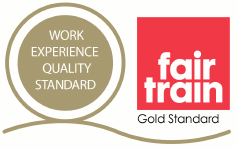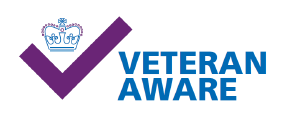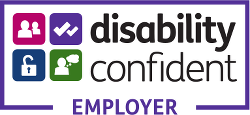Crynodeb o'r swydd
- Prif leoliad
- Any speciality
- Gradd
- Medical Professional
- Contract
- Parhaol: Up to two posts available
- Oriau
- Rhan-amser - 1 sesiwn yr wythnos (The current team of MEs each work part time, which will have a bearing on the work pattern offered to new appointees. It is anticipated that an increase in sessions will be possible in the future. There will also be a need for the Service to provide cover at weekends and bank holidays to allow rapid release of the deceased for faith reasons and this is envisaged to be availability for two hours each morning on these days.)
- Cyfeirnod y swydd
- 321-CORP-MS-6446673-S1
- Cyflogwr
- Oxford University Hospitals NHS Foundation Trust
- Math o gyflogwr
- NHS
- Gwefan
- All OUH sites
- Tref
- Oxford
- Cyflog
- Pro rata
- Yn cau
- 31/07/2024 23:59
Teitl cyflogwr

Medical Examiner
Medical Professional
The Oxford University Hospitals NHS Trust is one of the largest NHS teaching trusts in the country. It provides a wide range of general and specialist clinical services and is a base for medical education, training and research.
The Trust comprises of four hospitals - the John Radcliffe Hospital, Churchill Hospital and Nuffield Orthopaedic Centre in Headington and the Horton Hospital in Banbury.
Our values, standards and behaviours define the quality of clinical care we offer and the professional relationships we make with our patients, colleagues and the wider community. We call this Delivering Compassionate Excellence and its focus is on our values of compassion, respect, learning, delivery, improvement and excellence. These values put patients at the heart of what we do and underpin the quality healthcare we would like for ourselves or a member of our family. Watch how we set out to deliver compassionate excellence via the OUH YouTube channel.
Many of our recruitment programmes use values-based interviewing to identify those who have the skills we seek, who share our values and who are able to deliver compassionate excellence from the outset. We know that this makes a significance difference to your job satisfaction and above all the outcomes and experience of our patients and their families.
For more information about our Values and Value Based Interviewing please visit http://www.ouh.nhs.uk/about/vision-and-values/default.aspx
Trosolwg o'r swydd
Medical Examiners (MEs) are senior doctors who verify clinical information on Medical Certificates of Cause of Death (MCCDs), to ensure appropriate referrals to the Coroner and accuracy and consistency of MCCD content. They are responsible for the scrutiny of the documentation and circumstances arising from non-coronial deaths in England and Wales. MEs will take a consistent approach to the formulation of MCCD content, which must be clinically accurate and reflect any discussions with the next of kin/informant. MEs must not have been involved in the care of the deceased patients for deaths they scrutinise. MEs and their Officers also are required to ensure that the bereaved have an opportunity to raise concerns about the care of the deceased so that these are recognised and passed to the clinical team or the relevant clinical governance team.
Prif ddyletswyddau'r swydd
- To work within the team of Medical Examiners and Medical Examiner Officers to deliver timely and appropriate scrutiny of deaths within the catchment area of the Medical Examiners’ Office.
- To ensure compliance with the legal and procedural requirements associated with the reformed processes of certification, investigation by coroners and registration of deaths.
- To scrutinise the certified causes of death offered by attending doctors in a way that is proportionate, consistent and compliant with the proposed changes in national guidance.
- To discuss and explain the cause of death with next of kin/informants in a transparent, tactful and sympathetic manner. It is anticipated that such discussions will be predominately conducted through telephone conversations where barriers to understanding information may exist.
Gweithio i'n sefydliad
The Medical Examiner Service for Oxfordshire is hosted by the Oxford University Hospitals NHS Foundation Trust, but the Service is independent of the Trust and Medical Examiners report to the National Medical Examiner but are also accountable to the CMO of the Trust.
The values, standards and behaviours of the team of MEs and the team of Medical Examiner Officers are in common with those of the host Trust and other NHS organisations.
Swydd ddisgrifiad a phrif gyfrifoldebau manwl
- To work within the team of Medical Examiners and Medical Examiner Officers to deliver timely and appropriate scrutiny of deaths within the catchment area of the Medical Examiners’ Office.
- To ensure compliance with the legal and procedural requirements associated with the reformed processes of certification, investigation by coroners, and registration of deaths.
- To scrutinise the certified causes of death offered by attending doctors in a way that is proportionate, consistent and compliant with the proposed national guidance.
- To discuss and explain the cause of death with next of kin/informants in a transparent, tactful and sympathetic manner. It is anticipated that such discussions will be predominately conducted through telephone conversations where barriers to understanding information may exist.
- To ensure that all users of the ME system are treated with respect and are not discriminated against on the grounds of sex, race, religion, ethnicity, sexual orientation, gender reassignment or disability.
- Identify deaths that could potentially be reported as clinical incidents to the treating doctor or organisation to allow the potential for learning through clinical governance processes.
- To maintain comprehensive records of all deaths scrutinised on the Trust electronic ME software system.
- To undertake analysis of the records to provide information to the National Medical Examiner’s (NME) office.
- To participate in relevant clinical governance activities relating to death certification including audits, mortality review processes and investigations regarding formal complaints about patient care.
- To support the training of junior doctors in their understanding of death certification and promote good practice in accurate completion of MCCDs.
- To work with Medical Examiner Officers delegating duties as appropriate.
- To adopt a collaborative working relationship with other MEs by sharing experiences and expertise to support peer learning and set uniform standards of service delivery.
Knowledge, skills and performance
As a pre-condition of practicing, you must have successfully completed the mandatory components of the national online medical examiner curriculum. Face-to-face training must be completed within the first three months of being in post.
You will be expected to comply with national protocols to ensure that in each case the cause of death is scrutinised in a way that is proportionate and consistent.
You must have up to date knowledge of medical conditions, treatments and medicines which may or may not have contributed to death, and be able to exercise judgement in where to seek specialist advice in order to determine the appropriate level of scrutiny required.
You must have detailed knowledge of the relevant legislation and processes which apply to:
- The determination of whether a death is natural or unnatural
- Deaths that must be reported to the coroner
- Deaths abroad where bodies are returned to England and Wales for disposal
- Deaths where relatives wish to transport the body abroad for disposal
You will have regard to guidance issued by the NME when carrying out your ME functions.
MEs should be aware of how their personal communication style impacts on others and be able to adapt their approach to suit a variety of situations and audiences. This will require:
- Clinical and professional experience gained during a career working at a senior level in either in primary or secondary care, eg Consultant or senior General Practitioner.
- Highly evolved self-awareness and empathetic skills to liaise effectively and sympathetically with bereaved families
- The ability to demonstrate and combine appropriate levels of compassion with professionalism and discretion
- Being open to constructive criticism, ideas and solutions
- Acting as a positive role model and interacting appropriately with all stakeholders including MEOs, other MEs, the bereaved and the coroner
- Having the integrity to gain trust and comply with the independent nature of the ME role in the context of other clinical specialty duties.
MEs must avoid any potential conflicts of interest as defined in the national guidance.
Clinical Governance
The postholder will participate in clinical governance activities, including clinical audit, clinical effectiveness, risk management, quality improvement activities as required by the Trust, and external accrediting bodies.
MEs may be asked to participate in any relevant governance activities relating to scrutiny and confirmation of the cause of death where concerns have been raised by the next of kin/informant of the deceased and/or clinical staff and ME scrutiny. However, the ME service is independent of the Clinical Governance process of NHS organisations providing clinical care.
MEs will facilitate routine analysis of MCCD information to identify trends, patterns and unusual features of deaths and report, as required, firstly to the Regional Lead ME and ultimately to the NME’s office.
Accountability
You will have professional independence in scrutinising deaths but will be accountable to the National Medical Examiner for achieving agreed standards or levels of performance.
For those MEs who did not have a Responsible Officer for the purpose of Medical Revalidation, the Trust's Chief Medical Officer has offered to provide this through the Revalidation Office in the Trust.
MEs will have an immediate local line management responsibility to the Lead Medical Examiner, the Regional Lead Medical Examiner and the National Medical Examiner.
Medical Examiners enjoy the same NHS indemnity as any other Medical employee, but additional protection can be obtained from the appropriate organisation.
Manyleb y person
Qualifications/Training
Meini prawf hanfodol
- Medical practitioner registered and licensed to practise in the UK by the GMC.
- Candidates must have successfully completed the mandatory e-learning modules by the time they start the role. Candidates must attend a faceto-face training session within the first three months in post.
Skills and Knowledge
Meini prawf hanfodol
- An understanding of mortality review processes and commitment to the ‘learning from deaths’ initiatives and how this contributes to patient safety and increased accountability for bereaved families and carers
- Up-to-date knowledge of causes of death and the legal framework and relevant jurisdiction relating to death certification.
- Knowledge and understanding of the role of MEs and of the purpose of establishing a national medical examiner system.
- Broad medical knowledge to enable scrutiny of deaths and ability to recognise learning opportunities.
- Knowledge of the special requirements of various faith groups and respect for equality and diversity.
- Commitment to maintain knowledge and keep skills up to date
- Good spoken and written English. Highly developed communication and interpersonal skills.
- Excellent communication skills with people at all levels including hospital staff, bereaved relatives and coronial staff.
- Strong interpersonal skills demonstrating the ability to communicate in difficult and emotional situations with empathy and professionalism
- Ability to work effectively and efficiently within own team and also closely with people in other disciplines.
- Evidence of effective and sustained contribution to clinical governance, clinical risk management and clinical audit activities
- Knowledge of local and national clinical governance systems and an understanding of how the ME can work collaboratively to improve patient safety by identifying sub-optimal clinical and organisational performance.
- Ability to identify available data sources to support the detection and analysis of concerns and to recognise gaps in available knowledge.
- Ability to identify and disseminate examples of good practice amongst relevant colleagues.
- Effective administrative and time management skills. Training in clinical management.
- Ability to manage and comply with sensitive information-based processes under tight timescales with a proportionate approach.
- Ability to work as part of a team and organise a fluctuating workload around competing priorities and numerous interruptions.
- IT competent, for the purposes of efficient scrutiny and routine analysis of information for local clinical governance and public health surveillance.
- IT skills including use of email and commonly used software.
Meini prawf dymunol
- Management qualification.
Personal qualities
Meini prawf hanfodol
- Proactive and self-motivated with a flexible working approach
- Have the resilience to manage own reaction to frequently distressing situations and support others within the team.
- To sustain professional integrity and independence at all times, particularly where there is the potential for a conflict of interest.
- It is a condition of the appointment that the postholder will be willing to work at any of the Trust’s locations.
Gofynion ymgeisio
Rhaid i chi gael cofrestriad proffesiynol priodol yn y DU.
Mae'r swydd hon yn ddarostyngedig i Orchymyn Deddf Adsefydlu Troseddwyr 1974 (Eithriadau) 1975 (Diwygio) (Cymru a Lloegr) 2020 a bydd angen cyflwyno Datgeliad i'r Gwasanaeth Datgelu a Gwahardd.
Dogfennau i'w lawrlwytho
Rhagor o fanylion / cyswllt ar gyfer ymweliadau anffurfiol
- Enw
- Chris Kearns
- Teitl y swydd
- Lead Medical Examiner
- Cyfeiriad ebost
- [email protected]
- Gwybodaeth i gefnogi eich cais
Alternative contact: Dr Chrisi Swann at [email protected]
Rhestr swyddi gyda Oxford University Hospitals NHS Foundation Trust yn Meddygol a deintyddol neu bob sector








